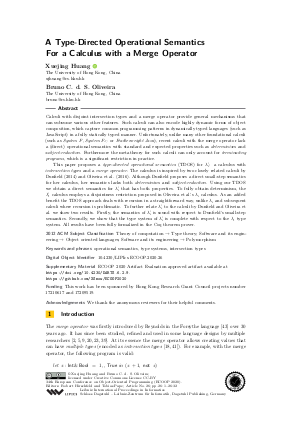LIPIcs.ECOOP.2020.26.pdf
- Filesize: 0.68 MB
- 32 pages

 Creative Commons Attribution 3.0 Unported license
Creative Commons Attribution 3.0 Unported license









Feedback for Dagstuhl Publishing